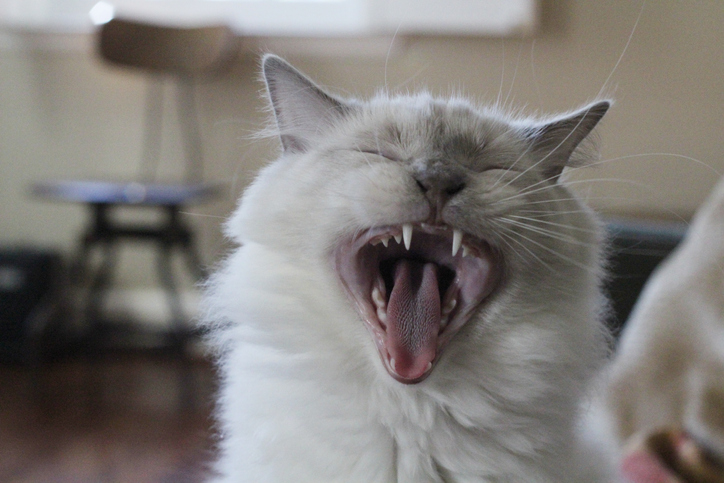
Brett Goulding was sentenced at the Auckland District Court this week to 100 hours community work for failing to get help for his pet's severe dental problems.
He was also disqualified from owning animals for five years - except for the other two cats still currently in his care, and ordered to pay $365 in reparations after the cat was eventually euthanised.
Goulding's cat was taken to a veterinarian by a rescue organisation in November 2018 after a complaint by a member of the public who saw the cat had obvious dental problems.
The vet noted the cat was very thin with chronic poor nutrition, lesions on its nose, and severe periodontal disease. The vet gave the cat antibiotics and pain relief, and advised the rescue organisation to inform the owner he should return with the cat for dental treatment.
The cat was returned to the owner with encouragement to seek further medical treatment.
In January 2019, an SPCA inspector visited the defendant's address to check on the cat and noted no treatment had been sought. The cat was seized and taken for immediate vet treatment.
The vet found the cat had severe issues in its mouth including broken teeth, exposed roots and ulceration at the corners of his mouth. After eight days of care, including steroids and pain relief, the vet recommended euthanasia as the most humane treatment.
SPCA inspectorate general manager Tracy Phillips said the action was not taken lightly.
"It's a bit out of the ordinary to even lay charges in this case, to be honest, but it's a result that gives a message to people that if you're going to have animals, then you do need to plan for how to take care of them when things go wrong, or that vet bills are fairly significant."
She said that when people had difficulty looking after their animals, there was usually something going on in their home life.
"You know, we've had Covid, people have lost jobs, we've had a drought - we've got all sorts of things going on.
"Not many people are deliberately cruel to their animals, or deliberately not taking them to the vet - they might be having money problems, they might be having health problems themselves - they might have their own dental problems themselves. For a person to go to the dentist is fairly expensive too."
Phillips said the SPCA preferred to approach a problem by figuring out how to help.
"I understand in this particular situation other people had offered help, which was why this one ended up in a prosecution."
She said that in relation to the other two cats in Goulding's care, the SPCA would only intervene if there was a complaint.
"We don't just drop in and visit people and check up on their animals randomly."
Phillips said on average, the SPCA and its 60 inspectors nationwide handled about 13,500 complaints each year.
"We don't have time to just go and visit people and check animals unless there's a complaint, but we do act on them so if someone makes a complaint about an animal we'll follow up on that, but in all cases we try to work with the owner to get the best outcome."
She said it was good that the public were still reporting suspected mistreatment of animals, but less than one percent of cases the SPCA dealt with required prosecution, or other regulatory action.
"So there's very few cases reported to us that are sitting in the deliberately cruel and neglectful area."
Phillips said people wanting to give pets as Christmas gifts this year were urged to consider that some could need care and attention for up to 20 years, and even longer.












